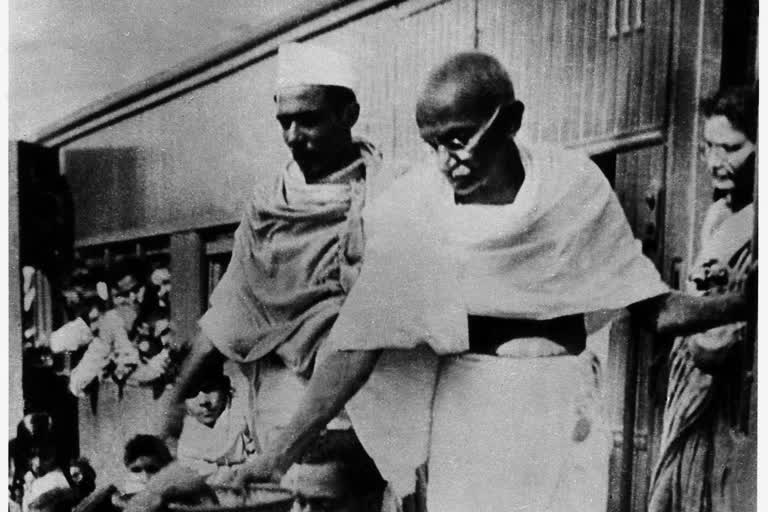New Delhi:“Generations to come will scarce believe that such a one as this ever in flesh and blood walked upon this earth.” These are the words of Albert Einstein about Mahatma Gandhi.
The title of Mahatma was anathema to Gandhiji. He felt somewhat awkward if someone called him Mahatma. Gandhi was an ordinary mortal like any other human being. He attained greatness by his deeds. No doubt the forces of time did play a role in his journey. Yet, his inherent character too helped him achieve such a great height.
Gandhi had committed several mistakes in his life as is common with any other man. What made him different from others was that he never repeated the same mistakes. This was the key to his moral progress. He was in the habit of doing self-assessment at every stage of his life. He would introspect and find out about his flaws even though no one else noticed them. He would put to scrutiny not only his own words and deeds but even his innermost thoughts. He believed that even if he had committed a mistake or sin in his thoughts it would be seen by the God Almighty. So he would confess before the world his mistakes. He would then find a way to atone for his ‘sin’. In Phoenix Ashram in South Africa, he had once skipped one meal and given up salt. Such self-inflicted punishment later even took the form of indefinite fasts.
Later in life, he had extended the rules he had made for self to his colleagues, those who lived in his ashram and to the society at large. That is why he fasted when he saw impurity creeping into the Satyagraha movement or violence and communal hatred in the society. When on fast, his prayers would become intense and the fast would give him peace.
Contrary to the general tendency among people to find fault with others, Gandhi found fault with his own self and described his mistakes as “Himalayan blunder”. In fact, the phrase ‘Himalayan blunder’ owes its origin to Gandhi. As soon as he realized his mistake, he would make it public, repent and atone for it and resolve not to repeat it. This way, he treaded the path of truth and reached the pinnacle of moral Himalaya.
This made him an ever-evolving person. His thoughts too evolved along with his experiments with truth. Hence, he had said if people found discrepancy in his words they should believe in the latest words spoken by him. Ever vigilant about his own actions and thoughts, he would rectify them and not hesitate in accepting his mistakes.
Another feature of Gandhi’s character was that he struck a delicate balance between logic and faith. He would accept only logical ideas. And, he was highly religious as well. For instance, he evinced keen interest in the thoughts of many a members of the theosophical society and liked their giving importance to Indian thoughts and philosophy. Yet, he did not believe in their concept of metaphysics and life after death. Gandhiji’s opposition to untouchability was based on rationality and logic. Yet, he relied on faith where cold logic failed. He had immense faith in God and believed that there is an element of God in every individual. He also believed that if the Creator represented the good he would lead the people to the good of all. He had unwavering trust in truth and he believed this truth can be achieved only by practicing non-violence.
